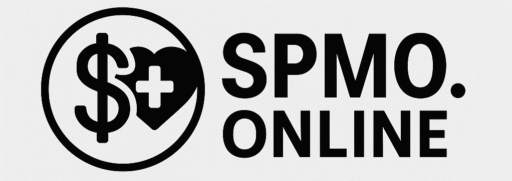Learn why an emergency fund is essential for protecting your health and maintaining financial stability during unexpected life events.
In today’s unpredictable world, having an emergency fund is not just a financial recommendation—it’s a necessity. An emergency fund acts as a financial safety net, designed to cover unexpected expenses such as medical emergencies, job loss, or urgent home repairs. Without this buffer, individuals may find themselves in debt, unable to afford essential healthcare, or forced to make difficult financial decisions that can have long-term consequences.
Why an Emergency Fund Matters for Health
Health emergencies can happen to anyone at any time. A sudden illness, injury, or chronic condition can lead to significant medical bills, even for those with health insurance. For example, a broken leg can cost thousands of dollars in medical expenses, including hospital stays, surgeries, and physical therapy. Without an emergency fund, individuals may delay seeking treatment, which can worsen their condition and lead to higher costs in the long run.
Moreover, financial stress caused by unexpected expenses can negatively impact mental and physical health. Studies have shown that financial worries are a leading cause of anxiety, depression, and sleep disorders. Over time, chronic stress can contribute to serious health issues such as heart disease, high blood pressure, and weakened immune function. By having an emergency fund, you can reduce stress and focus on recovery rather than worrying about how to pay for treatment.
Why an Emergency Fund is Crucial for Your Health and Finances
An emergency fund acts as a safety net during tough times like job loss, illness, or medical emergencies. It helps you cover sudden expenses without stress or debt. With rising healthcare costs, having savings gives peace of mind and protects your physical and financial health. It’s one of the smartest ways to stay secure, no matter what life throws your way.
How an Emergency Fund Protects Against Medical Emergencies
Medical emergencies can happen without warning, and treatment often comes with high costs. An emergency fund helps you pay for doctor visits, medications, or hospital stays without going into debt. It gives you quick access to money when you need it the most. This can speed up recovery, reduce stress, and help you focus on getting better instead of worrying about bills.
Building Your Emergency Fund
Creating an emergency fund may seem daunting, especially if you’re living paycheck to paycheck. However, even small steps can make a big difference over time. Here’s how to get started:
- Set a Realistic Goal: Aim to save three to six months’ worth of living expenses. This amount should cover essential costs such as rent, utilities, groceries, and healthcare.
- Automate Your Savings: Set up automatic transfers from your checking account to a dedicated savings account. Treat this like a monthly bill to ensure consistency.
- Cut Back on Non-Essentials: Review your spending habits and identify areas where you can cut back. For example, reducing dining out, canceling unused subscriptions, or shopping for discounts can free up extra cash.
- Use Windfalls Wisely: Allocate bonuses, tax refunds, or gifts toward your emergency fund to boost your savings quickly.
- Start Small: If saving three to six months’ worth of expenses feels overwhelming, start with a smaller goal, such as 500or1,000, and gradually increase it.
Real-Life Example
Consider Sarah, a 32-year-old graphic designer who was diagnosed with appendicitis. Without an emergency fund, she would have struggled to cover the 3,000 out-of-pocket cost for her surgery. Fortunately, Sarah had been diligently saving 100 per month for two years, allowing her to pay for the procedure without going into debt. Her emergency fund not only protected her finances but also gave her peace of mind during a stressful time.
Conclusion
An emergency fund is a vital tool for safeguarding both your financial and physical well-being. By prioritizing savings, you can face life’s uncertainties with confidence and ensure that you’re prepared for whatever comes your way. Start small, stay consistent, and remember that every dollar saved brings you one step closer to financial security and better health.

